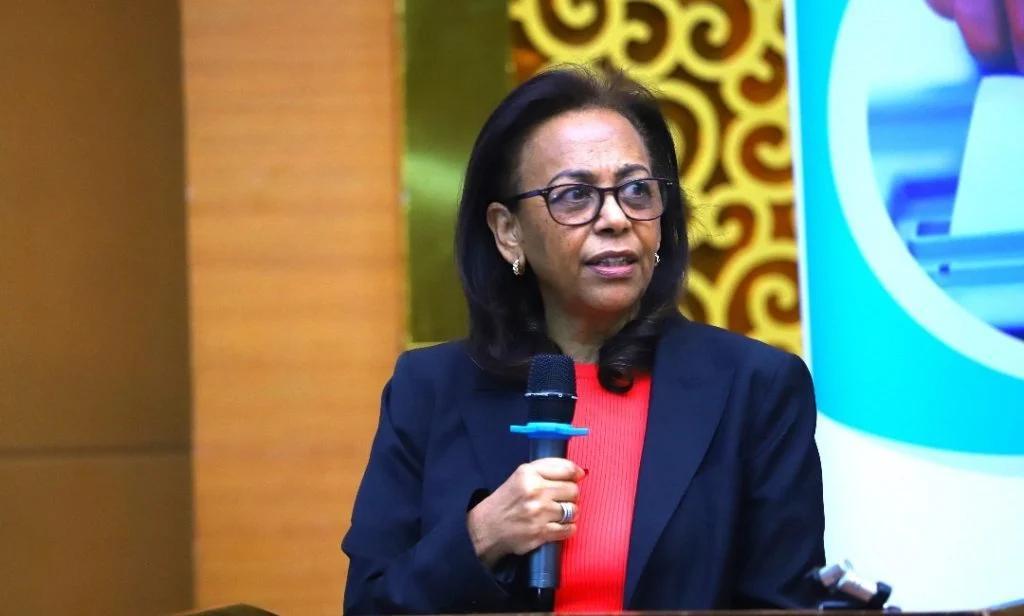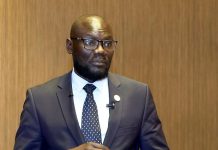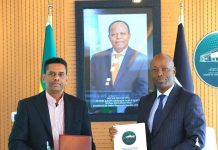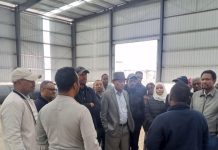By addisstandard
Africa-Press – Ethiopia. November 6, 2025 4 minutes read Addis Abeba – The Ethiopian Political Parties Joint Council (EPPJC) has urged the government and relevant institutions to revise existing election laws and address security challenges that it says could undermine the credibility of the upcoming 7th General Election.
In a statement issued on 25 November 2025, the Council warned that “the current legal framework and peace and security conditions in the country do not allow political parties to operate freely,” adding that these constraints risk preventing a fair and competitive electoral process.
The Council said it is working to ensure that the next national election will be “freer, fairer, more peaceful, and more democratic than any previous one,” and that the results are acceptable to all stakeholders, including voters, political parties, and observers.
It highlighted four key areas that require legal and procedural reform: the collection of support signatures for candidates, access to government financial support for political parties, the electoral system, and the election timetable.
Support Signatures Requirement
The Council noted that the existing proclamation on elections requires candidates to collect large numbers of support signatures, which it said is “not feasible under the current peace and security situation.”
According to the law, candidates for the House of Peoples’ Representatives must gather 2,000 signatures, while female candidates are required to collect 1,500. For candidates with disabilities, the threshold is 1,500 for men and 500 for women. Similar requirements apply to candidates for regional councils.
“The existing realities make it difficult for parties, particularly opposition groups, to collect support signatures safely and effectively,” the Council said, calling for the removal or amendment of the requirement.
Financial Support for Parties
The EPPJC also urged the government to ease restrictions on financial support for political parties. Current law stipulates that parties must collect at least 20 percent of member contributions before becoming eligible for government funding—a condition the Council said is “difficult to meet under the prevailing political and economic circumstances.”
Electoral System Reform
The Council reiterated its long-standing call to replace Ethiopia’s First-Past-the-Post (FPTP) electoral system with a Proportional Representation (PR) model. It argued that the existing system has “wasted voters’ votes” and limited the participation of opposition parties in previous elections.
“Many agree that the current system is one of the main factors that prevented opposition parties from gaining representation in parliament and regional councils,” the statement said. It recalled that during previous consultations at the Prime Minister’s Office, attended by the Prime Minister and National Election Board of Ethiopia (NEBE) officials, there was consensus on the need for electoral reform, though implementation has not followed.
Election Timetable
The Council also called on NEBE to design a timetable that allows sufficient time for parties to prepare and form coalitions. Under current regulations, political parties must notify the Board of their coalition plans two months before the official election schedule is announced—a deadline the Council says limits opportunities for alliance-building.
Extending the period, the Council added, would “create greater opportunities for political parties to form alliances and strengthen democratic participation” ahead of the 7th General Election.
The Ethiopian Political Parties Joint Council brings together multiple political organizations aiming to promote multi-party democracy and improve electoral processes in the country.
The Prime Minister Abiy while responding to questions from lawmakers on 28 October 2025 assured that Ethiopia’s 2026 national elections will go ahead as scheduled, stressing that the process will proceed regardless of security-related concerns or political objections.
“We don’t need anyone’s permission to hold elections; we have sufficient capacity.” He responded to claims by some political actors that elections could not be conducted, clarifying that the 2026 elections will move forward as planned. “The country and political parties are prepared, and the elections will proceed accordingly,” he added.
The National Election Board of Ethiopia (NEBE) has proposed 1 June 2026 as the date for the country’s 7th general election, and held a consultative meeting with political party leaders on 20 October 2025. While the Board said the schedule remains open for revision pending further discussions, opposition parties voiced concern over the prevailing security situation and shrinking political space, questioning the feasibility of holding a credible election under current conditions.
A senior political party leader who took part in the Board’s consultation informed Addis Standard that the National Election Board of Ethiopia announced election activities are scheduled to begin on 30 October 2025, with election day set for 1 June 2026. The draft timetable, the source said, outlines key pre-election activities leading up to the announcement of the final results.
According to the press release, NEBE Chairperson Melatwork Hailu stated in her opening remarks that the objective of the discussion was to incorporate key perspectives from political parties and ensure that their concerns are considered in a way that promotes transparency, fairness, and credibility, with the aim of reaching a common understanding.
However, several opposition leaders expressed doubts about the feasibility of holding an election under the current national conditions.
In an interview with Addis Standard, Professor Merera Gudina, Chairperson of the Oromo Federalist Congress (OFC), said the conditions necessary for a fair, free, and credible election “simply do not exist.”
“For elections to be fair, free, and credible, two basic conditions must be fulfilled: a political space that allows a level playing field for competing parties, and the necessary security for them to campaign peacefully. Under the existing situation, both are non-existent across the country,” he said.
Professor Merera noted that five years ago, the OFC had 206 offices across Oromia, but now maintains only three – in Finfinne, Ambo, and Assela. “The fortune of all genuine opposition parties is no better,” he added. “In the three major regions – Oromia, Amhara, and Tigray – there is no security to field candidates, conduct campaigns, or protect ballot boxes. These regions constitute about 70 percent of the country’s population.”
He stressed that even if the government promises to provide security, “the OLA, Fano, and Tigraian forces must agree. Otherwise, you cannot campaign even in Sululta or Sebeta.” He also warned that under current conditions, it would be impossible to deploy both national and international observers, which are vital for ensuring the credibility and legitimacy of the election.
Source: Addis Standard
For More News And Analysis About Ethiopia Follow Africa-Press






